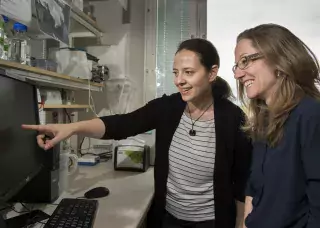News archive
On this page you can search for older news. Choose a topic, type of news or enter your own keyword to filter out news.
View compact
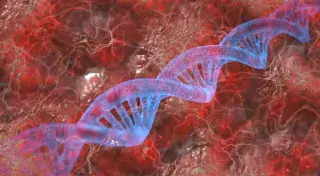
Karin Wallander at the research group Clinical Genetics, Department of Molecular Medicine and Surgery, will defend her thesis "Hereditary predisposition and prognostic prediction in cancer" on December 17, 2021. Main Supervisor is Emma Tham.
News

Kristina Haugaa is the new Professor of Cardiology at the Department of Medicine in Huddinge, since October 11. "I'm eager and thrilled to conduct cardiology research at Karolinska Institutet".
News
Audience: Medarbetare
Medicin, Huddinge

Obesity increases the risk of developing cancers of the digestive system and it is the person’s fat mass, rather than size, that is the main obesity-related risk factor for these cancer types, according to a new study published in the journal PLOS Medicine by researchers at the University of Cambridge and Karolinska Institutet.
News

Determining who is the biological father of a child is a sensitive subject, but the answer can be crucial in important issues. In a nationwide study published in the Journal of Internal Medicine, researchers from Karolinska Institutet, by using two different models, have been able to show that the proportion of incorrectly established paternities in Sweden is as low as 1.7 percent, a figure that has decreased over time.
News

Researchers at Karolinska Institutet, together with British colleagues, have conducted the largest study to date in search of genetic markers about cluster headache. In the long term, it can hopefully pave the way for more effective treatments. The study is published in the scientific journal Annals of Neurology.
News
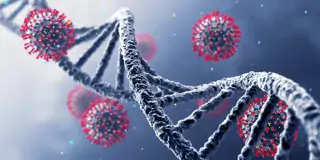
In March 2020, thousands of researchers across the globe joined forces to answer the question of why some COVID-19 patients develop a severe, life-threatening disease, while others manage with mild or no symptoms. A comprehensive summary of their findings to date, based on the analyses of nearly 50,000 patients and published in Nature today, reveals 13 genetic regions that are strongly associated with infection or severe COVID-19.
News

New review article looks at readiness prior to the implementation of genomics-based precision medicine in complex diseases. The extensive work has been led by researchers at Karolinska Institutet and Lund University and has been carried out together with some 30 researchers throughout Sweden. The results are now being published in the Journal of Internal Medicine, JIM.
News

Sweden was the first country in the world to introduce open-identity sperm donation, whereby adult children are entitled to obtain information about their donors. Researchers at Karolinska Institutet have now explored how such contacts and relations affect the parents of these young men and women. The study, which is published in Human Reproduction, shows that mothers often find it easier to accept the new situation.
News
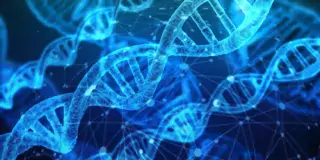
Researchers at Karolinska Institutet have investigated how a newly developed algorithm in connection with gene analysis can be used to improve the possibilities of preventing premature vascular disease and death in individuals with the hereditary lipid disorder, familial hypercholesterolemia. The findings, published in the Journal of Internal Medicine, show how the method can lead to faster and more cost-effective investigations in such families.
News
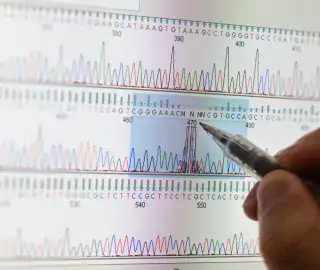
More than 1,200 people with rare diseases have received a diagnosis thanks to the integration of large-scale genomics into the Stockholm region’s healthcare system. This is according to a study from Karolinska Institutet in Sweden that analysed the result of the first five years of collaboration on whole genome sequencing between Karolinska University Hospital and SciLifeLab. The work, published in Genome Medicine, constitutes a major leap forward in the emerging field of precision medicine.
News

A large brain imaging study involving researchers at Karolinska Institutet demonstrates that same-sex sexual behaviour-related differences in the brain exist. Patterns in the brain that differentiate between men and women were less pronounced in non-heterosexual individuals, and some of the brain differences could be linked to a genetic predisposition for non-heterosexuality. The study is published in the scientific journal Human Brain Mapping.
News

Liver transplantation is currently the only treatment available for the severe liver disease PSC. Now, however, researchers at Karolinska Institutet and Oslo University have discovered the first reported genetic mutation that causes PSC. The study, which is published in Science Translational Medicine, opens new paths to future treatments.
News

Almost one in five people lacks the protein α-actinin-3 in their muscle fibre. Researchers at Karolinska Institutet now show that more of the skeletal muscle of these individuals comprises slow-twitch muscle fibres, which are more durable and energy-efficient and provide better tolerance to low temperatures than fast-twitch muscle fibres. The results are published in The American Journal of Human Genetics.
News
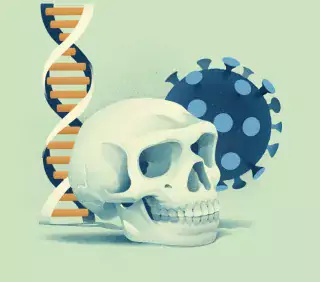
Last year, researchers at Karolinska Institutet and the Max Planck Institute for Evolutionary Anthropology in Leipzig, Germany showed that a major genetic risk factor for severe COVID-19 is inherited from Neandertals. Now the same researchers show, in a study published in PNAS, that Neandertals also contributed a protective variant. Half of all people outside Africa carry a Neandertal gene variant that reduces the risk of needing intensive care for COVID-19 by 20 percent.
News
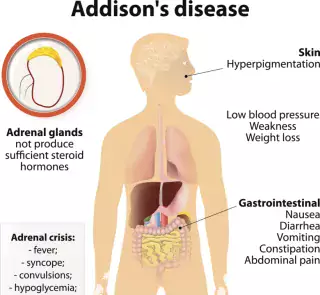
Variants of nine genes increase the risk of developing Addison’s disease, a rare disease in which the immune system attacks the adrenal glands. That is according to the largest genetic study to date on patients with Addison’s disease. The findings help increase knowledge about what causes the disease. The study was conducted by researchers at Karolinska Institutet and University of Bergen, Norway, and is published in the journal Nature Communications.
News
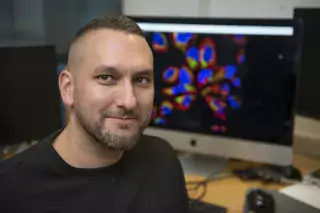
Samir El Andaloussi, researcher at the Department of Laboratory Medicine, has been awarded the 2020 European Research Council Consolidator Grant for the project “Release of engineered Extracellular vesicles for delivery of Biotherapeutics”.
News
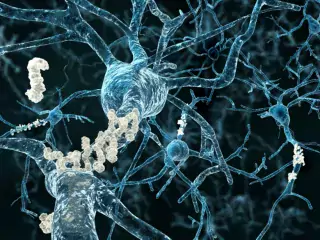
Researchers at Karolinska Institutet have studied the incidence and regional distribution of Alzheimer’s disease biomarkers in the brains of people with Down’s syndrome. The results can bring new possibilities for earlier diagnosis and preventive treatment of dementia. The study is published in Molecular Neurodegeneration.
News

A study published in Nature shows that a segment of DNA that causes their carriers to have an up to three times higher risk of developing severe COVID-19 is inherited from Neandertals. The study was conducted by researchers at Karolinska Institutet and Max Planck Institute for Evolutionary Anthropology.
News

More than 10 percent of young and previously healthy people who develop severe COVID-19 have misguided antibodies that attack the immune system itself, and another 3.5 percent carry a specific genetic mutation. This is according to new research published in Science by an international consortium involving researchers at Karolinska Institutet in Sweden.
News
Researchers at KI have received funding from the United States Army for the development of genetic engineering methods to alleviate or cure the disease Duchenne muscular dystrophy (DMD), the most common form of genetic neuromuscular disease in children.
News
Evaluating the genetic correlations across our phenotypes is of essential importance for understanding disease etiology and other potential causality. The new method – published in the journal Nature Genetics – vastly improves our power in estimating genetic correlations using the huge established resources from genome-wide association studies.
News

Decades-long endurance training alters the activity of genes in human skeletal muscle that are important for metabolic health. This is according to a new study published in the journal Cell Reports by researchers at Karolinska Institutet in Sweden and the University of San Diego in the U.S. Sex differences found in untrained individuals were also dramatically reduced with long-term training. The results may have implications for metabolic disease prevention.
News
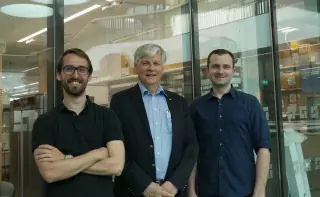
Researchers at Karolinska Institutet have discovered that excessive degradation of the power plants of our cells plays an important role in the onset of mitochondrial disease in children. These inherited metabolic disorders can have severe consequences such as brain dysfunction and neurological impairment. The study is published in EMBO Molecular Medicine.
News
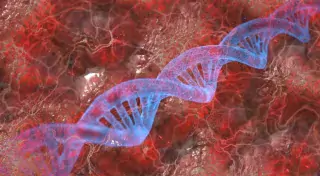
A new study has been initiated to evaluate whole-genome and RNA-sequencing as a first line diagnostic approach for patients in Sweden with acute leukemia. The study is conducted jointly by the national R&D platform Genomic Medicine Sweden and the biotech company Illumina – and is coordinated from Karolinska Institutet.
News

One in three women in Europe inherited the receptor for progesterone from Neandertals – a gene variant associated with increased fertility, fewer bleedings during early pregnancy and fewer miscarriages. This is according to a study published in Molecular Biology and Evolution by researchers at the Max Planck Institute for Evolutionary Anthropology in Germany and Karolinska Institutet in Sweden.
News
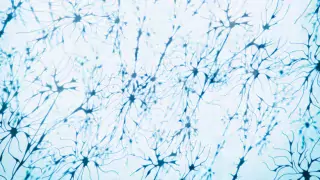
Researchers at Karolinska Institutet and the University of North Carolina have mapped out the cell types behind various brain disorders. The findings are published in Nature Genetics and offer a roadmap for the development of new therapies to target neurological and psychiatric disorders. One interesting finding was that cells from the gut's nervous system are involved in Parkinson's disease, indicating that the disease may start there.
News
Twin Research and Human Genetics has just published an overview article of the Swedish Twin Registry (STR). The registry has developed into an infrastructure of broad utility, aiming to provide a resource for epidemiological and molecular studies of twins.
News
Twelve researchers at Karolinska Institutet qualify for the annual list of highly cited researchers compiled by Web of Science.
News
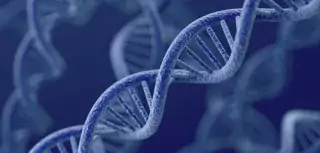
Whole-genome sequencing can be used to diagnose intellectual disability more accurately than other methods of genetic analysis, researchers at Karolinska Institutet report in the scientific journal Genome Medicine. Whole-genome sequencing using analytical tools developed by the researchers will now be introduced for first-line clinical diagnosis at Karolinska University Laboratory in Sweden.
News

Jesper Eisfeldt from the research group Rare Diseases will defend his thesis "Characterization of structural chromosomal variants by massively parallel sequencing" on November 8th, 2019. Main Supervisor is Anna Lindstrand.
News
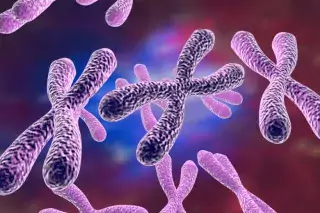
Researchers at Karolinska Institutet in Sweden have uncovered a chromosome-wide mechanism that keeps the gene expression of sex chromosomes in balance in our cells. The findings shed light on molecular reasons for early miscarriage and could be important for the emerging field of regenerative medicine. The study is published in Nature Structural and Molecular Biology.
News

Researchers have developed a new variant of the gene editing technique CRISPR-Cas9 that has the potential to increase precision during gene therapy in humans. The new variant reduced unintended changes in DNA compared to its wildtype, suggesting it could play a role in gene therapies that require high precision. The study by researchers from Karolinska Institutet’s Ming Wai Lau Centre of Reparative Medicine in Hong Kong is published in the journal PNAS.
News
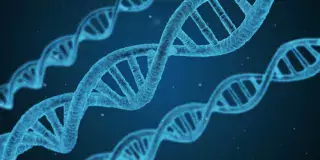
Researchers at Karolinska Institutet have taken part in the largest study to date on the genetic risk factors for multiple sclerosis (MS). The study, which is published today in the journal Science, corroborates earlier studies and provides new clues as to what causes this neurological disease. The resulting map will prove a vital resource for future researchers and could one day lead to new, more potent drugs.
News

People – or more specifically just Swedes – are more like chimpanzees than previously known. This is indicated in a genetic mapping of one thousand Swedish individuals, where new DNA sequences that should be included in the reference genome have been identified. The study is published in the scientific journal Molecular Biology and Evolution.
News
Title: Socioeconomic influences on late-life health and mortality : exploring genetic and environmental interplay
News

Genes cannot be used to determine an individual’s sexual orientation. A study published in the journal Science found only five out of hundreds of thousands genetic variants occurred somewhat more often in people who had had same-sex partners. This suggests human sexuality is influenced by a complex mix of genetic and environmental factors, according to the researchers. The study is based on data from the UK Biobank, the U.S. company 23andMe and the Swedish Twin Registry at Karolinska Institutet.
News
Using puzzle pieces from four different DNA analyses, researchers at Karolinska Institutet have been able to map three extremely complex chromosome aberrations. This has given families answers about the cause of their children’s serious symptoms. The study was published in the scientific journal PLOS Genetics and the goal is to produce a test to be used in the clinic.
News
Most researchers will never come close to winning a Nobel Prize. But some are fortunate enough to work with one of the 200 or so living Nobel legends of the research world. In the magazine Medical Science no 4 2018, there is a news article where three KI researchers are interviewed about their collaborations.
News
Scientists at Karolinska Institutet in Sweden and University of North Carolina, USA, have identified the cell types underlying schizophrenia in a new study published in Nature Genetics. The findings offer a roadmap for the development of new therapies to target the condition.
News

The failure of drugs such as SSRIs, used to treat depression, can be a result of genetic variations in patients. Variations within the gene that encodes the CYP2C19 enzyme results in extreme differences in the levels of escitalopram achieved in patients, according to a new study published in The American Journal of Psychiatry. Prescribing the dose of escitalopram based on a patient’s specific genetic constitution would greatly improve therapeutic outcomes.
News

